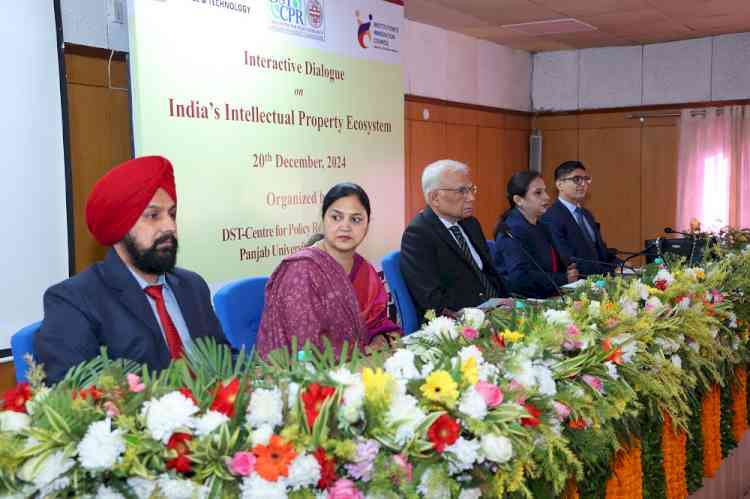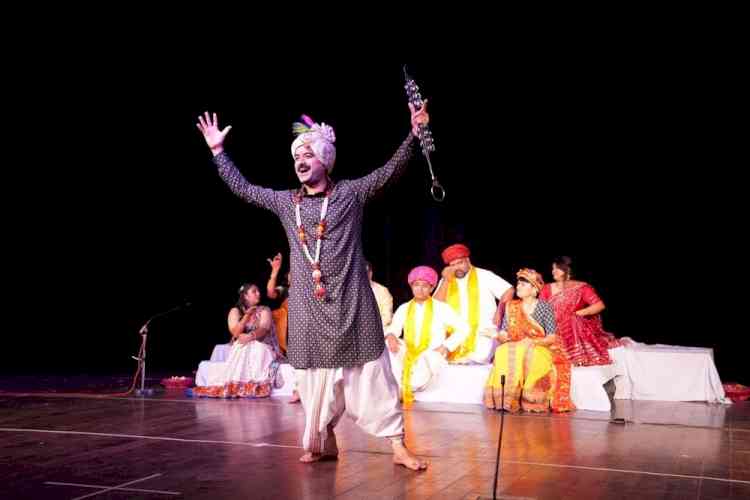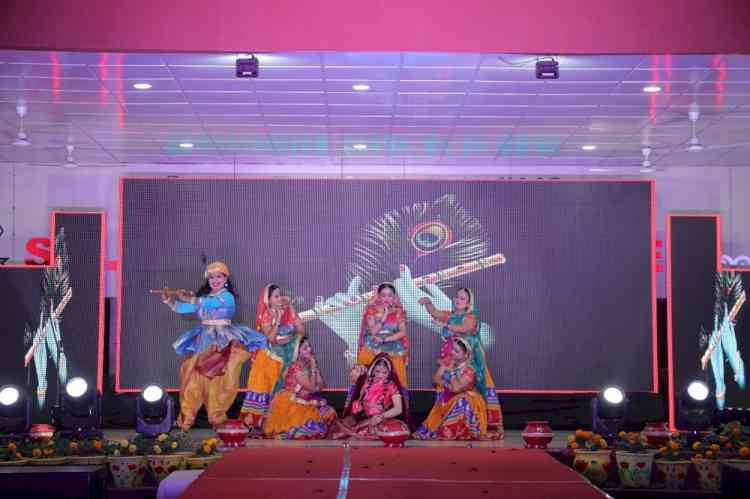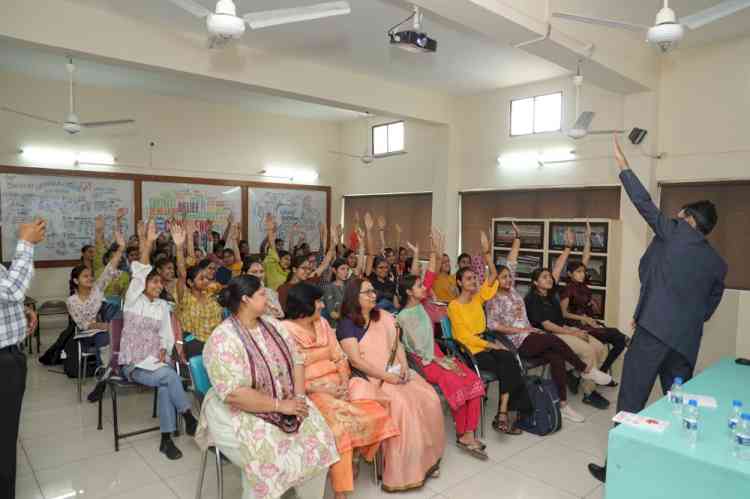Brainstorming session titled “Interactive Dialogue on India’s Intellectual Property Ecosystem”
DST-Center for Policy Research, Panjab University, Chandigarh organised a brainstorming session titled “Interactive Dialogue on India’s Intellectual Property Ecosystem”.

Chandigarh, December 22, 2024: DST-Center for Policy Research, Panjab University, Chandigarh organised a brainstorming session titled “Interactive Dialogue on India’s Intellectual Property Ecosystem”.
The event brought forward an insightful dialogue among IP leaders, policymakers, academicians, and legal experts to exchange ideas and strategies for enhancing India’s Intellectual Property Rights (IPR) framework.
Prof. Yojana Rawat, Director R&D, Panjab University, Chandigarh graced the event and shared her views on Intellectual Property Rights (IPRs) and its need in today’s era.
Dr. Pushpendra Rai, IAS (Retd.), former Director, WIPO, Geneva was the chief guest for the event. Dr. Rai highlighted the significance of IP in economy growth. He mentioned the importance of IP assets and strategic partnership which act as the major drivers for the growth of any nation’s economy. He stressed on the need to make up to the level of China which has a missionary zeal for Intellectual Property, a major contributor from Asia. He encouraged the revival of dormant IP assets at each level.
Dr. Dapinder Bakshi, Joint Director, PIC-cum-TISC, PSCST, Chandigarh stressed on producing good quality patents that should help the society and proposed the encouragement for GI tag to support local innovations. This requires an identification of grassroots innovations at the state level that in turn strengthen the inputs to national IP policy.
The event hosted renowned experts from all over India to share their experiences.
Vikrant Rana, Managing Partner, S. S. Rana, and Company, New Delhi was one of the esteemed experts who highlighted the need for IP assets and the role it plays in strengthening the Industry Academia interlinkages.
In the interactive sessions, experts let participants know the relevance of IPR policy at the national level and state levels with the aim of sharing the best practices to strengthen the IPR ecosystem of India. The event provided a great platform to discuss strengthening the patent regime in HEIs with a focus on promotion, incentivisation, enforcement criteria, and teachings from international best practices. Dialogues were exchanged to discuss various challenges and bring forward solutions to translating innovations from lab to market and best practices followed across the globe. The event brought forward the idea of finding a novel solution to a localised problem and getting valued patents out of it.
The event witnesses the active participation of different stakeholders from different parts of India.


 City Air News
City Air News 








